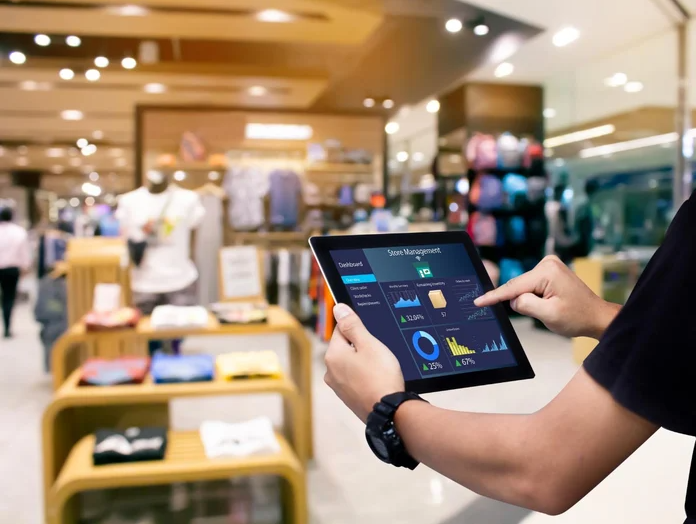
Streamlining Retail Operations With Advanced Technology
Introduction
In today’s fast-paced retail environment, efficiency and accuracy are essential for maintaining customer satisfaction and operational effectiveness. Modern supermarkets increasingly rely on technology to streamline their processes. One critical component in this transformation is the supermarket scanner, a device that ensures quick and accurate checkout while supporting inventory management and pricing strategies.
The Role of Scanners in Supermarkets
Supermarket scanners serve as the primary interface between products and the store’s management system. By quickly reading barcodes, these devices speed up checkout times, reduce human error, and ensure accurate pricing. Beyond transaction processing, scanners also contribute to inventory tracking, sales reporting, and supply chain management.
Benefits of Using a Supermarket Scanner
Implementing high-quality scanners offers several advantages:
- Enhanced speed: Accelerates the checkout process, reducing customer wait times.
- Accuracy: Minimizes pricing errors and prevents discrepancies in billing.
- Inventory management: Tracks product movement in real-time for efficient stock control.
- Cost savings: Reduces labor requirements and operational inefficiencies.
- Customer satisfaction: Streamlined checkout and accurate pricing improve the overall shopping experience.
Types of Supermarket Scanners
Retailers can choose from various scanner types depending on their operational needs:
- Handheld scanners: Flexible and easy to use for smaller counters or mobile checkouts.
- Fixed-mount scanners: Installed at checkout stations for fast, high-volume scanning.
- Wireless scanners: Provide mobility and allow employees to scan items across the store.
- Laser scanners: Highly accurate and efficient for scanning barcodes from different angles.
- CCD scanners: Compact and reliable, ideal for medium-volume retail environments.
Integration With Retail Systems
Modern supermarket scanners are more than just devices for reading barcodes. They are integrated into comprehensive retail management systems that:
- Update inventory in real-time as products are scanned.
- Track sales data to forecast demand and manage replenishment.
- Support loyalty programs and targeted promotions.
- Ensure pricing consistency across all checkout points.
See also: How Technology Is Revolutionizing Traditional Education
Factors to Consider When Choosing a Scanner
Selecting the right scanner involves evaluating various aspects:
- Scanning speed: High throughput is critical for busy checkout lines.
- Compatibility: Should integrate seamlessly with existing POS and inventory systems.
- Durability: Scanners must withstand daily usage in a retail environment.
- Ease of use: Employees should quickly learn to operate the device efficiently.
- Cost-effectiveness: Balancing initial investment with long-term operational benefits.
Technological Advancements
Recent developments in supermarket scanners have enhanced retail efficiency:
- Wireless connectivity: Reduces clutter and increases flexibility.
- 2D barcode scanning: Allows reading of QR codes and complex barcodes for promotions and digital coupons.
- Mobile POS integration: Enables scanning directly from tablets or smartphones.
- Cloud-based systems: Facilitates real-time reporting and remote management of store operations.
Maintenance and Support
To ensure reliability, regular maintenance of supermarket scanners is crucial:
- Routine cleaning: Keeps the scanner lens clear and improves accuracy.
- Software updates: Ensures compatibility with new barcode formats and POS software.
- Hardware checks: Early detection of wear or malfunction prevents downtime.
- Employee training: Proper handling reduces damage and extends scanner lifespan.
Impact on Retail Operations
The use of efficient supermarket scanners transforms operational workflows:
- Reduced queue times: Faster scanning leads to smoother customer flow.
- Improved inventory accuracy: Real-time data minimizes out-of-stock situations.
- Data-driven decisions: Sales analytics enable better merchandising and stocking strategies.
- Enhanced customer loyalty: A quicker, seamless checkout experience encourages repeat visits.
Conclusion
Investing in high-quality supermarket supermarket scanner scanners is a strategic move for retailers aiming to improve efficiency, accuracy, and customer satisfaction. By integrating these devices with modern POS and inventory systems, supermarkets can optimize operations, reduce errors, and gain valuable insights into consumer behavior. Ultimately, leveraging advanced scanning technology supports long-term growth and competitiveness in the retail industry.




